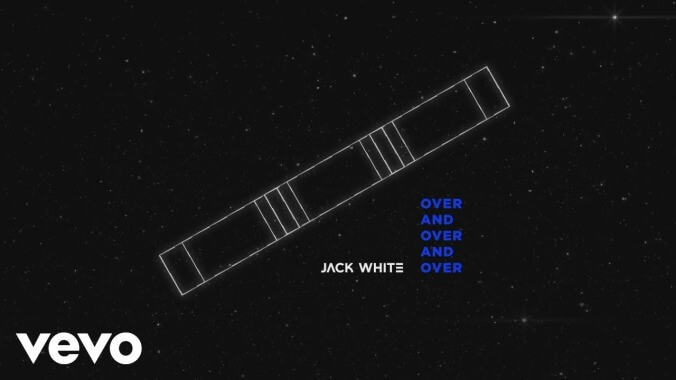Jack White gets weird(er) on Boarding House Reach

Although Jack White was the primary creative force in The White Stripes, the three albums he’s made since officially going “solo” have all been decidedly non-Stripes-like. Both Blunderbuss in 2012 and Lazaretto in 2014 were rooted in the primitive blues, garage rock, and rural folk music that White made with his partner Meg White for a decade. But unmoored from the rudimentary instrumentation that he’d intentionally saddled himself with in his band, White’s become more ambitious with his arrangements, adding background singers, electronic treatments, and full orchestrations when the mood strikes.
The big difference between White’s new solo LP, Boarding House Reach, and the two before it is that he seems more invested in the creative process as an end in itself. Blunderbuss and Lazaretto almost feel like compilation albums of White’s best songs, culled from two years of making records with eclectic batches of collaborators, for a wide variety of projects. Boarding House Reach is arriving four years after Lazaretto, but it doesn’t sound like White’s been spending all that time stockpiling great material. He’s stayed busy as an impresario and entrepreneur, but on his own time as an artist, he appears to have been doing a lot of dicking around.
That’s not intended as an insult. Frankly, Blunderbuss and Lazaretto are almost too perfect. Their songs are catchy and fully realized, but also tightly controlled in a way that the more spontaneous White Stripes albums usually weren’t. The word “controlled” hardly describes Boarding House Reach’s “Hypermisophoniac,” which serves up three and a half jarring minutes of erratic rhythms, woozy synthesizer, idle piano plunking, scratchy guitar, and White doing a call-and-response with himself about how there “ain’t nowhere to run / When you’re robbin’ a bank.” It’s all utter nonsense—yet curiously compelling.
White has said that he wrote this latest set of songs in a flurry, by holing up in a Nashville apartment and improvising melodies into a tape recorder. He then drafted some New York and Los Angeles musicians he’d never worked with before—mostly from the world of rap, jazz, and R&B—and laid down the basic tracks for Boarding House Reach in under a week, divided between two studios. He took the results of those sessions back home and futzed around with them, using some of the digital editing and mixing technology that he’d always denied himself before.
What White emerged with is an album bearing unexpected echoes of other artists. It sounds like Prince—but more The Black Album version of Prince than Purple Rain. It sounds like George Clinton—but from the more experimental side of Parliament-Funkadelic, not “Atomic Dog.” It sounds like hip-hop—but as filtered through early Beck, not Kendrick Lamar.








































